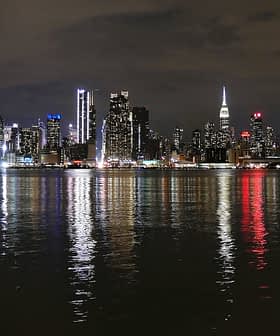Harvest has started in Italy with great expectations in a season that is hoped to be something of a renaissance for the national olive growing sector, but it’s too soon to tell if such hopes will be fulfilled, said Raffaele Maiorano, the president of ANGA, the National Association of Young Farmers.
The group supports youth entrepreneurial initiatives while promoting an agriculture that looks to the future and respects traditions through dialogue with government and institutions.
Production in 2015 is expected to be higher than in 2014, but Maiorano has good reasons to assume that many variables can still affect the final yields and we have to wait until December to obtain a real balance. “Nevertheless, we can say for sure that olive oil quality will be higher than last year since the weather conditions inhibited the outbreak of the olive fruit fly and other diseases, and the farmers worked have hard to realize effective preventive measures.”
Awareness is growing and our commitment is to support and facilitate the activity of key players, especially young olive entrepreneurs, in this crucial moment.
Higher prices due to last year’s lower production have provided some relief, Maiorano said.
“Prices are finally fair for the first time in many years, in particular with regard to certain areas. Two years ago, olive oil from Calabria, Sicily and Apulia was sold by producers to suppliers at a price ranging from €3.80 to €4.50 per liter, while last year prices raised between €5.00 and €7.00 (for organic EVOO) per liter.”
The legislative proposal adopted by European Commission to offer additional temporary access for Tunisian olive oil to the EU market, increasing the monthly exports quota, is a hot topic these days.
“Supporting Tunisia’s recovery in this difficult period is a noble and indispensable act,” Maiorano considered, “but this kind of measure risks damaging our farmers. Increasing non-EU exports without adequate provisions (such as requiring the label to indicate the country of origin), can cause traders to import at very low prices, engaging in unfair competition to the detriment of local production.”
“We ask the government and our representatives at the European Parliament to protect Italian production, through an adequate evaluation of this proposal,” he said.
Regarding the so-called CoDiRo syndrome that is plaguing olive trees in Salento, “the Xylella emergency was a dramatic event but we are now very positive. We are confident in the scientists and researchers that contained the problem with excellent results and stemmed the outbreak,” he affirmed.
“EVOO is having a moment,” Maiorano declared, “comparable to what wine experienced a few years ago. Things are changing both for the olive oil producers and for consumers. The operators in the restaurant industry are comprehending the importance to offer their clients not only excellent wine but also high-quality EVOO. Awareness is growing and our commitment is to support and facilitate the activity of key players, especially young olive entrepreneurs, in this crucial moment.”
Experts and operators can talk about all these insights and more on October 23 – 24 at the 16th Meeting of Executives of ANGA in Palermo (Sicily), an event held every two years.
This edition’s theme regards the new model of agribusiness. ANGA will suggest the right tools to join the transition from the current status of farmers to a new condition of agricultural entrepreneurs, in order to redirect the olive sector into a modern and dynamic path.
“We will discuss a new development model giving concrete answers, going beyond slogans, providing support with effective solutions for a new national agricultural entrepreneurship. We will talk about Europe, internationalization, and myths of innovation.”








